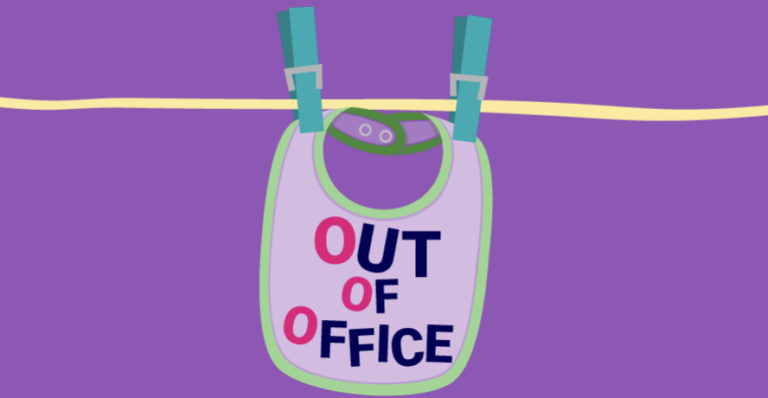Neo-liberal economic paralysis
I talked in my previous article about National deliberately working to create a low wage economy in New Zealand. A commentator was quick with the neo-liberal mantra:
‘Obviously the reason National intend to do this is to get inflation down so we can all afford to live again.’
And this is the vicious cycle that neo-liberal economics puts us all into. It will never be possible to raise wages because that will always cause inflation. Neo-liberal economics can never lift people out of poverty or even into the middle class because rises in wages will cause demand and demand will cause inflation so Government has to reign in the wage growth and govt spending while the inflation erodes the purchasing power, until people are poor and it hurts demand.
Neo-liberal economics is stuck and broken because it holds people in perpetual recession. In classic economic theory demand by consumers could lead to an alternative reaction. Producers seeing extra demand could increase their production of the good or service and using economy of scales producers may reduce price, and more volume means more demand met so less demand exists so a slower turnover of the higher volume will see producers bring the price down to keep turnover up. That isn’t happening now. Why?
There are two primary reasons why customer demand will now always lead to inflation:
Firstly:
Large businesses have learnt it’s hard work to increase production and market share. It involves risk taking and entrepreneurs are risk minimisers. Too much production from a producer can cause competitors to drop their prices to keep their sales up, which can cause other competitors to drop their price further. Falling prices are not good for profits. Large businesses have learnt not to compete with each other on price because it is risky and will reduce their profits.
It is far better for large businesses to place their prices near to their competitors prices so each can maximise their profit through an approximate stabilisation of prices. They customer compete with each other on the margins: over imagery (e.g. coke and surfing), competitions, advertising imagery (DMAX tough vehicles for tough rugby playing good bastards – they do this because it works – oh my god how sad), loyalty programmes, through facilitating debt financing to make the product appear cheaper as weekly monthly payments. etc.
Large businesses have given up on consumer competition on price as the way to grow their business. It is easier to maximise their profits by exploitation of their existing customer base. Constantly bringing out variations and versions of essentially the same product. Creating add on services or features for almost no extra cost but massively charging for it. E.g. phone storage capacity. Using gimmicks, e.g. a folding phone.
For large business it’s all about screwing the customer. To maximise profit you maximise extraction out of each customer. Gone are the days when firms would compete on quality and price for customers. It’s easier to make the customer pay extra for quality features. Businesses do compete on price but through inferior versions of their premium products so they can maximise their profits on premium quality products. They only stand by their product to the extent the consumer will pay for it.
The neo-liberal economy has taught large businesses that ‘demand’ is simply a signal to raise prices because they can. There is no mechanism in a neo-liberal private market economy to tell a large business to think about ‘demand’ as an invitation to production and competition on price. Our current economy proves this.
The theory that business growth and dominance can be achieved by producing a quality good and services and selling that to a customer at a lower and lower price so your competitors are pushed to one side or out of business; does NOT exist anymore. Customer competition based on quality and price has been replaced by corporate takeovers as the path to growth. The economic benefits of successful goods and services are simply passed from one company to another in the share sale prices and the customer prices remain the same or goes up. There is no societal sharing of the benefits of innovation unless you pay dearly for it. The large businesses have reshaped the economic forces in our economy to maximise their profits.
The whole neo-liberal market led economic theory, about it leading to the supply of goods and services to satisfy everyones needs and some of their wants, is an intellectual fraud.
Every National/Act voter needs to simply open their minds think about it and grow up. (This was my experience on making apologies for religion, I was simply invited to think and to grow up. I did).
Secondly:
Demand currently always leads to inflation and therefore recession, because there is no honest actor in the economy who can supply goods or services at prices to keep other suppliers prices low.
In a social welfare economy the previous honest actor was the government when it was a supplier of goods and services. In early New Zealand critical infrastructure was failing so government had to take over, some banks, insurance companies, railways, housing, etc. Then it set prices reasonably for the community it served and that set a price benchmark that private firms had to compete with to stay relevant. This process helped keep inflation low. The whole economy benefited with more discretionary spending. And that demand did not lead to excessive inflation, it simply expanded the number of choices in the economy and grew new activities. Think of the growth of music, the arts, design and fashion in the 60’s.
Currently this economic growth simply can’t happen because the neo-liberal economic model constantly interprets demand as an invitation for large businesses to raise prices. This is not about thousands of transactions setting an equilibrium price. It’s about a small number of price decision processes being set up by a small number of managers/directors in large businesses to maximise their profits. That is the true nature of inflation (I’m not denying cost push inflation but Greedflation shows this is not the main process).
The government is clearly not doing enough to inject the government as a supplier of goods and services into the economy to help keep prices low. We have done this before and it worked.
I’ve run out of space (and time) here to repeat all the actions we need to take to create an economic environment which will help keep inflation down. But it is obvious that too many with a short term self-interest are influencing the running of our economy, and it’s going to get 100% worse under National.
The Winnie Prime Minister bet is the best bet in a one horse town. In politics you have a duty to play to win. Real people are damaged if you don’t.







A large part of the problem is the capture of business freedoms by the corportatocracy. Most employment contracts now have anti-competition clauses written in them, so if there was any inkling for anyone who saw a gap in the market to open up shop and therefore competition, they cannot. Recently there was a members bill about regulating these clauses out of contracts but was shot down by all the bigger parties. Legislating that any/all non-competition clauses (including those used by the bigger supermarkets to restrict local competition) would be a huge boost for NZ’s economy – also a great way to boost production.
Neo lib economics are faced with massive contradictions. One is the belief in the value of money and the idea that it can remain stable when you create debt out of thin air and print money.
Even that money and notional debt are absurd entities when you consider every transaction for real tangible goods requires energy and contains embedded energy. The real value / cost ascribed is the energy involved. Bit abstract I know but consider that in terms of grain prices which embed energy in fertilisers, ploughing, sowing, harvesting, transporting etc.
Now take the next jump. How available is energy? In a fossil fueled economy that’s crucial. Neolib and traditional economics assume price and availability are self balancing. Now let’s watch what happens if shipping from the Gulf gets closed off.
The neo-liberal economic model is a tool created by (US) corporate interests to further their (all corporate) interests at the expense of everyone else. Rejigging the economic pie from the many to the few, aka redirecting riches upwards leading to crumbs trickling down on everyone else was, and still is, its goal.
This model is not paralyzed, when we look at it the right way .i.e from whom it is designed to serve. Economic inequality is still rising, hence it is still doing its job.
The fact that there has been zero political push back to neoliberalism highlights, starkly, for whom our politicians truly serve. The Powell Memo, the forerunner to neoliberalism breaks this all down
The Lewis Powell Memo: A Corporate Blueprint to Dominate Democracy – https://www.greenpeace.org/usa/democracy/the-lewis-powell-memo-a-corporate-blueprint-to-dominate-democracy/
The Powell Memo: A Call-to-Arms for Corporations – https://billmoyers.com/content/the-powell-memo-a-call-to-arms-for-corporations/
The economy that we, and the world has today, is not by accident. And we, our govt, can’t do anything about it because they serve them – the same corporate interests whom have shaped today’s economic environment – over us. Again, the Powell Memo spells this all out.
Only we, the people, can do something about the purposeful state of today’s affairs, in this case, the economy, by holding our politicians to account. Time to put democracy into action. Democracy means a lot more than just voting every now and then. Time we pressured our pollies, time we stopped easily believing most things they say.
And as for National and Labour, in my view, National relishes serving corporate interests, it is what they live for. Labour, it is anyone’s guess as to why they serve corporate interests also, but at least, they do work at mitigating a lot of the damage that serving corporate interests inflicts upon us all. Hardly something to crow about, but if Kiwis truly new the reality of politics today, then National would never see power again….and that, would just be the starter for ten.
Sound logic although I would include that consumers are their own worst enemy when it comes to getting value for money. Cellphones for instance, you can get an Oppo for about half the price as a Samsung yet people pay more, own brand at supermarkets is often much better value yet people pay extra for the branded products even though in many cases the own brand stuff is made by the big brands as well.
It would be interesting to see a road construction price from MOW days to now (adjusted for inflation), we can see that electricity prices have gotten much more expensive with less state control so I suspect the same will apply with roads.
I don’t agree with your thoughts about religion though although the more ‘saints’ you meet the easier it can be to doubt their sincerity so it is an understandable conclusion.